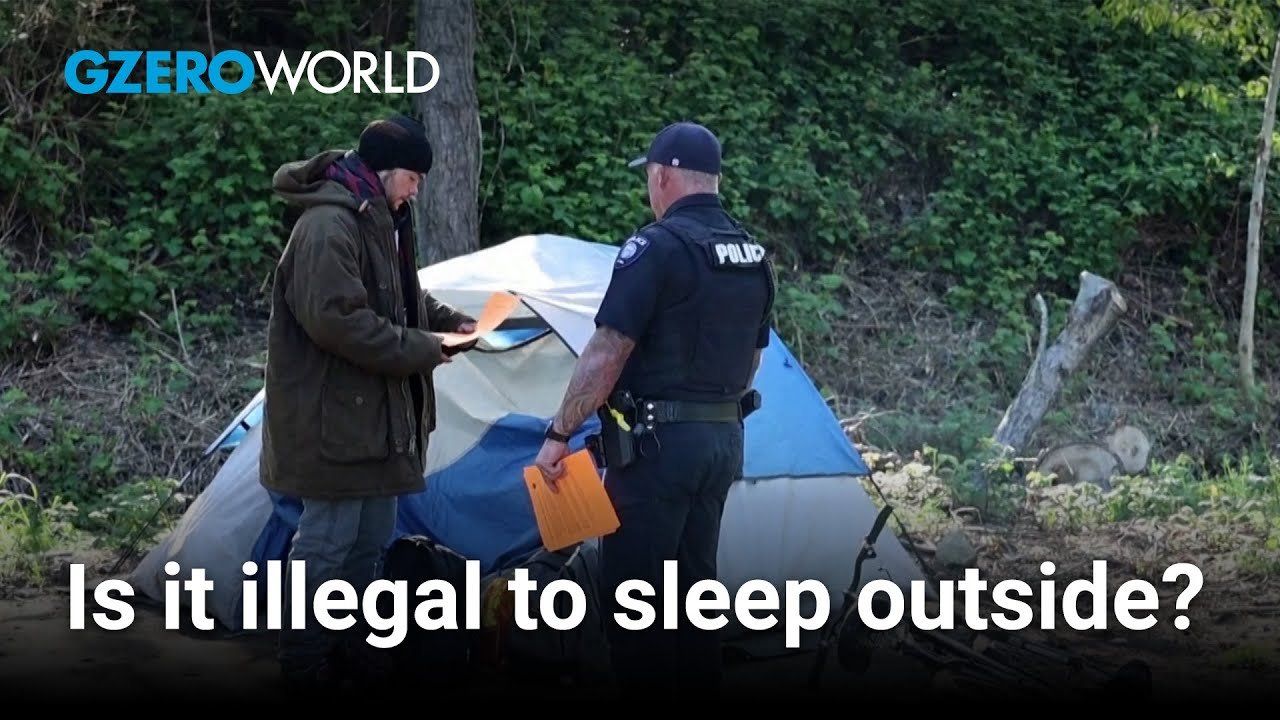GZERO World Clips
The Supreme Court tackles homeless right to sleep outside

The Supreme Court tackles homeless right to sleep outside | GZERO World

Is sleeping like breathing? Do Americans have a Constitutional right to sleep? In April, Supreme Court justices heard a case involving homeless encampments and whether cities that don’t provide shelter space can arrest or fine people for sleeping outside. At oral arguments, they asked philosophical questions about the idea of sleeping and whether or not providing space to sleep qualifies as “cruel and unusual” punishment under the 8th Amendment of the Constitution.
Legal expert Emily Bazelon joins Ian Bremmer on GZERO World to unpack some of the biggest cases before the Supreme Court this year. Former President Trump’s legal woes are front and center in the news, but many other major issues are at stake during this court term, including homelessness, gun rights, free speech on social media, and the power of federal agencies to interpret laws.
One case in front of the Court this year that isn’t generating a lot of headlines but will have a big impact on the daily lives of Americans involves the landmark 1984 Chevron v. Natural Resources Defence Council decision that provides the legal bases for government agencies like the EPA, SEC, and FDA to interpret laws how they see fit if they are ambiguous. At oral arguments, the Court’s conservative majority seemed skeptical of allowing the Chevron ruling as it stands to remain in place, which will fundamentally change the way the federal government operates.
“One way to think about these agencies is that they keep us safe. They make sure the water is clean and that the air is clean,” Bazelon explains. “Another way to think about them is they're intruding on corporate profits and taking up too much power.”
In this episode of Tools and Weapons, Microsoft Vice Chair and President Brad Smith sits down with Ed Policy, President and CEO of the Green Bay Packers, to discuss how purpose-driven leadership and innovation are shaping the future of one of the world’s most iconic sports franchises. Ed shares how technology and community-focused initiatives, from Titletown Tech to health and safety innovations on the field, are transforming not just the game of football, but the economy and culture of Green Bay itself. He explains how combining strategic vision with investment in local startups is keeping talent in the Midwest and creating opportunities that extend far beyond Lambeau Field.
Subscribe and find new episodes monthly, wherever you listen to podcasts.
Egyptians are voting this month in parliamentary elections that aren’t expected to change who’s in charge, but could allow President Abdel Fattah el-Sisi to rule beyond 2030.
Thailand and Cambodia’s ceasefire is on the verge of collapse. Strikes were launched across their disputed border today, following clashes over the weekend that resulted in the death of a Thai soldier.